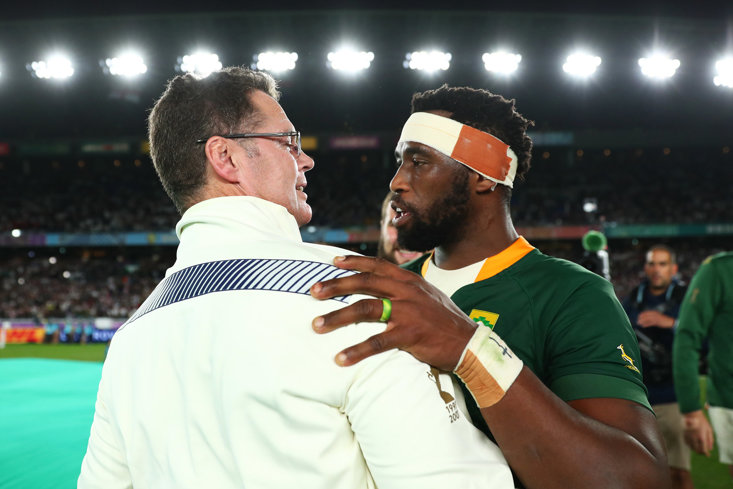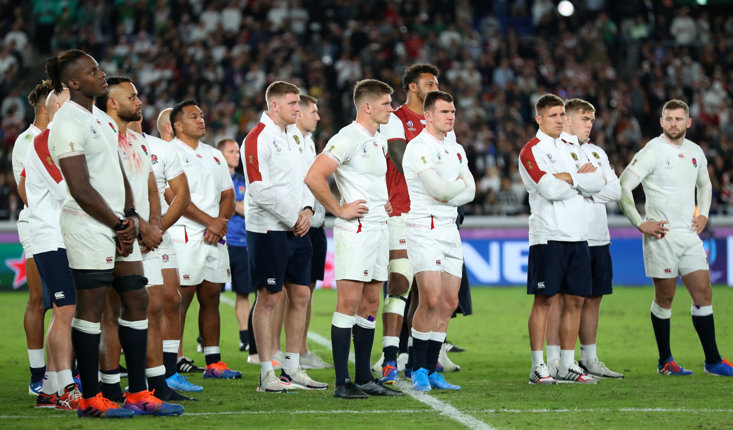If there is one thing for certain, it is that South Africa doesn’t do average. Especially in rugby.
The pendulum that had swung so far towards disaster in 2017, pinned itself firmly on the other side as the Springboks completed an epic journey to win the 2019 Rugby World Cup.
To think that just 18 months ago when Rassie Erasmus took over the coaching of the team they were downtrodden, had just lost to the All Blacks by 57 unanswered points and were at a lowly seventh in the world.
Erasmus’ meticulous planning, his player-driven self-belief and his honest approach to coaching not only turned the team into World Champions, but it led a nation to believe once again.
Rugby has always had a special place in South Africa. From the protestor-tours of the 60s, 70s and 80s in the Apartheid years to that Mandela moment in 1995, where the elder statesman was punching his arms behind Francois Pienaar as the rainbow nation defeated the odds to win one of the most epic Rugby World Cup finals in history.
On Saturday the sequel was etched into folklore. And the scriptwriters could have chosen no better way of ending the first World Cup in Asia.
South Africa’s first black captain, a player who has risen from the dust of Zwide township to the heights of Yokohama, who found and adopted his two half-brothers from foster care, who epitomises the rainbow nation with a mixed marriage and has the softest heart of a rugby player you’d ever find – lifted the Webb Ellis Cup.
It set off rapturous celebrations across the country at a time when South Africans needed it most. With the rainbow nation project fracturing, it reminded South Africans again that they are more than their worst shadows. Together a nation can achieve anything.
And they did. Erasmus’ brilliance ripped up the script of the traditional four year cycle. He found a way to make players believe – almost bloody-mindedly that nobody could stop them. He found a way to return to their strengths while integrating the best parts of different rugby cultures into a team that so often was torn apart by differences. And he did it in 18 months.

While in Kolisi he had the perfect captain, his forward pack was almost unbeatable. Tendai Mtawarira – or the “Beast” as he is known – was rejuvenated to lead a pack that demolished England in the final. Cheslin Kolbe, told so many times he was too small for international rugby, thrived in dancing through defences to score tries that seemed impossible. Makazole Mapimpi, a player who represents the deep heartland of black rugby in the Eastern Cape, showed on the international stage that belief can move mountains.
To understand the approach Erasmus took, you have to understand South Africa and its complex nature. Erasmus underlined it with the way they adapted after the opening loss to the All Blacks. Six weeks later they became the first team to have lost a pool match and still won the World Cup. But in a South African context, Erasmus knows all too well rugby is a small microcosm of bigger battles the country faces.
“It was my first World Cup as a coach and the first All Blacks game was a great test ground for us handling pressure. We were terrible that week, we were tense and it was a terrible build up and that taught us how to handle the quarter-final and semi,” Erasmus explained after his win.
“In South Africa it [pressure] is not having a job, having a close relative who is murdered. Rugby should not create pressure, it should create hope. We have a privilege, not a burden.“Hope is when you play well and people watch the game and have a nice braai [barbecue] and watch the game and no matter of political or religious difference for those 80 minutes, you agree when you usually disagree. That is our privilege and that was the way we tackled it.”

England’s multi-million pound venture may have failed at the final hurdle, but in beating the All Blacks comprehensively they turned World Rugby’s hierarchy on its head. One loss doesn’t mean failure, even on the biggest stage.
Eddie Jones has transformed England into one of the best outfits in World Rugby and their success at Junior levels in recent times could see this continuing for years to come. While many will be disappointed with the final result, Jones gave England hope again, and going forward the challenge will be to build on the platform he created.
"We’re the second best team in the world, mate. We didn’t meet our goal, our goal was to be the best team in the world, and we’re the second best team in the world. So that’s how we should be remembered,” he said afterwards.
"The players prepared tremendously well for this World Cup and played with a lot of pride, passion and we got caught short today. These things happen. But you can’t doubt the effort of the players. I thought they were extraordinary.”
On the night Jones’ plan collided with that of South African coach Erasmus. And as the dust settles on an epic Rugby World Cup, its hard not to feel that perhaps, just perhaps, South Africa needed this victory more in the larger context of things.
Kolisi lifting the golden trophy may not be what England fans wanted, but like Japan’s victory over South Africa in Brighton in 2015, it may be just what the sport needed.